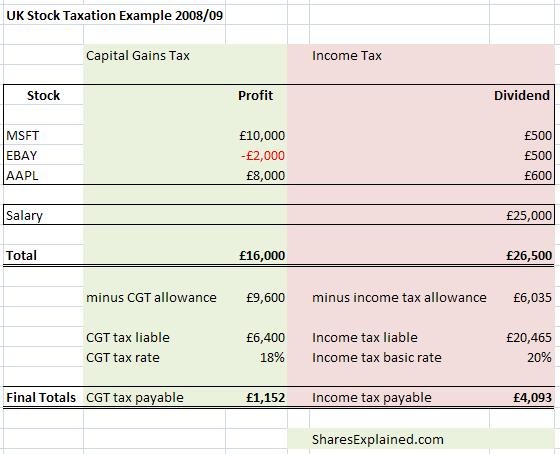Rules change how you figure taxes on stocks
Post on: 11 Июнь, 2015 No Comment

By Matt Krantz, USA TODAY
The IRS suspects investors are shortchanging it more than $11 billion a year. Now it has a plan to get some of that back.
By Nati Harnik, AP
TD Ameritrade offers free access to an online service that allows customers to track the cost basis on all their securities.
New rules kicked in this year that require brokerages, for the first time, to start tracking how much investors paid for stocks and report this information to the IRS for the 2011 tax year.
The changes, while seemingly arcane, stand to change how investors track their portfolios and even enter trades. The government suspects many taxpayers have been underpaying taxes due on profits from stock gains, either due to abuse or error. The new rules aim to close this tax gap.
What’s at issue is the critical concept of cost basis, which is consistently one of the biggest headaches investors must deal with. The cost basis, the amount you paid for an investment plus commissions, determines how much you made, or lost, when you sell a stock. And it’s the cost basis that determines if you owe Uncle Sam money or can claim a deduction for a loss.
The new rules are designed to make it easier for investors to find their cost basis. But some big gaps in the rules will create considerable confusion in the meantime.
There’s relief for investors long term, but getting through the next year or two will be a little awkward, says Cameron Routh at Scivantage, which is helping brokerages manage the new rules.
CALCULATING COST BASIS: Tracking down cost basis on stock you bought 15 years ago
ASK MATT: Ways to keep track of the cost basis of your stock
TAX HELP: All the latest tax news, tips and advice
It’s critical for investors, even those who aren’t active traders, to understand the new cost basis rules this year so they don’t have any ugly surprises when taxes are due in 2012 and beyond. To help, USA TODAY highlights the key things investors need to know:
What’s covered. Starting this year, brokerages are required to track the cost basis on common stocks. Some exchange traded funds, or ETFs, are included, but a majority are not, says Stevie Conlon, senior director at Wolters Kluwer Financial Services. Your cost basis on many ETFs, as well as mutual funds, doesn’t have to be tracked by brokers until 2012, she says. Stock options are tracked next, starting in 2013.
What will seem different. The first time you’ll notice changes will be when you sell stock. Most of the online brokerages will have a place for you to enter which tax lot you want to sell.
The tax lot is an arcane but very important topic for investors to understand, because it can make a huge difference in your tax situation.
Let’s say you bought 100 shares of a stock in January for $30 a share and another 100 shares of the same stock in February for $40. If you sell 100 shares for $35, you need to tell your broker if you sold the $30 shares or the $40 ones. The difference could mean you either owe taxes on a $500 capital gain or you can potentially deduct a $500 loss. Under the new rules, you have only three days after selling the stock to make the choice, rather than until the end of the year. The rule pertains only to shares bought this year and beyond.
Most brokerages will not prompt you to enter the information when you sell you’ll be expected to know to enter it. Otherwise, most brokerages will assume that the first lot you bought is the one you sold a first-in, first-out basis which isn’t necessarily the best option for all taxpayers.
The second big change will be the form you receive. Starting in 2012, investors will get a 1099 tax form from their brokerages that contains the cost basis for all the covered securities.

The role of wash sales. Some investors are in for a big shock when they find their brokers disqualify some capital losses they try to claim. These can be lucrative because taxpayers may deduct up to $3,000 a year in capital losses from their income.
However, there’s an often-ignored rule that changes how these losses are handled. Brokers must now enforce these rules. If you sold a stock for a loss, you cannot immediately take the loss on the sale if you bought shares of that same stock within the 30 days before or after the sale. Instead, the cost basis on the shares you bought is adjusted.
Investors have already been stunned to see capital losses postponed due to the wash sale rules, says Brian Keil, director of cost basis and tax reporting at Charles Schwab. It’s not until you’re in the weeds that people start to pay attention and understand. It’s without a question a sticking point.
Where they’re not off the hook. Brokerages are required to track the cost basis only for stocks bought in 2011 and beyond in accounts you hold at that brokerage. You’ll need to continue to track the cost basis yourself for shares bought prior to 2011.
There are also complications with the wash-sale rules. For instance, brokerages will alert the IRS that a loss is invalid if you violate the wash-sale rule with a trade at that brokerage. However, if you violate the wash-sale period using another account held at another brokerage, it’s your responsibility to track that and report it to the IRS.
How to use tracking tools. Bracing for misunderstanding and confusion, brokerages are making sure clients have online tools to help them track their cost basis during the year. TD Ameritrade. for instance, provides free access to an online service called GainsKeeper that allows them to track the cost basis on all their securities, not just the ones bought in 2011. Meanwhile, Fidelity and Schwab continue to provide documents and tools to help investors see what their 1099s in 2012 might look like and plan now.
These tools are especially critical when investors transfer their accounts from one brokerage to another. While the brokerage you’re leaving is required to transfer the cost basis on stocks bought this year, there’s no penalty for failing to do so. What’s more, if you were tracking shares you bought prior to 2011 on the old brokerage’s website, you will probably lose that data when transferring to a new brokerage.
The new cost basis rules may put more responsibility into the hands of brokers, but investors who understand the rule can take best advantage of it. There are positives and negatives to the rule, says Nico Willis, CEO of NetWorth Services. But it’s unprecedented in how it will give investors power to manage their investments.
For more information about reprints & permissions. visit our FAQ’s. To report corrections and clarifications, contact Standards Editor Brent Jones. For publication consideration in the newspaper, send comments to letters@usatoday.com. Include name, phone number, city and state for verification. To view our corrections, go to corrections.usatoday.com .














